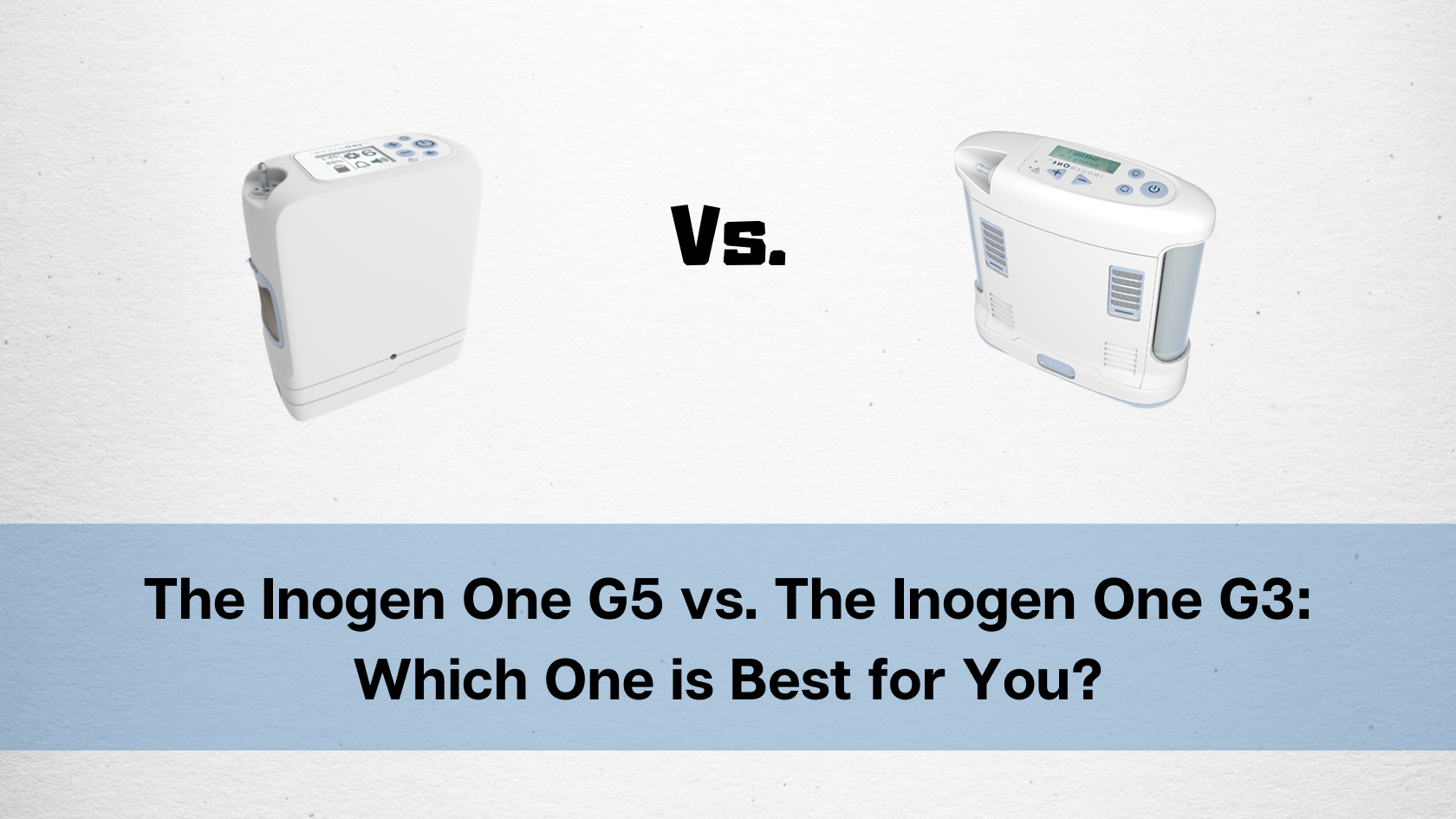
With so many great oxygen concentrators on the market these days, we can’t blame you for taking the time to find the perfect one. Oxygen concentrator companies like Respironics, ResMed, and Inogen have taken the industry by storm, providing COPD patients with competitive pricing, quality, and efficiency.
Inogen is one company in particular that always seems to stand out whenever someone mentions oxygen concentrators While some concentrator companies choose to focus on units built for in-home use, Inogen believes that portable oxygen machines will offer patients the best experience possible without additional costs.
Another interesting thing to note about Inogen is that their products rarely go out of style. Despite releasing a brand new unit every couple of years, previous iterations remain popular and even compete with their latest models. What this means for you is that you don’t have to worry about purchasing a unit only for it to become obsolete the next day.
Because there are so many things to consider when buying a portable oxygen concentrator, we felt it would be best to break down and compare each Inogen One concentrator to help you find the best one for you. In this post, we’re comparing the Inogen One G5 portable oxygen concentrator and the Inogen One G3 portable oxygen concentrator.
Inogen One G3 Overview
The Inogen One G3 was released back in 2012 with several significant improvements over the Inogen One G2. This included a 25% oxygen output increase over the G2 with no added size or weight, a reduced sound level, and a sleek new design that Inogen would mimic for the next three iterations of the machine.
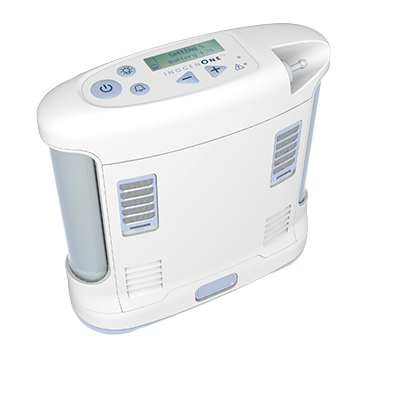
Perhaps the most notable achievement of the G3, however, is that it aimed to be the most lightweight and powerful portable oxygen concentrator on the market, which it achieved with flying colors. While the Inogen G5 topped the G3 in terms of oxygen output, the G3 still remains a great choice for many COPD patients across the world.
Inogen One G5 Overview
The Inogen G5 was released in the summer of 2019 and is currently the latest Inogen oxygen therapy machine on the market. At first glance, the G5 appears identical to the G4 in that it retains the angular look of the previous iteration. Because the new clean and easy-to-use control interface was so well accepted with the G4, that remained mostly untouched with the G5 as well.
.png)
Some of the most notable improvements over the G3 and G4 is that it doubles the oxygen output of the G4, has an increased battery life, and has a reduced sound level. Respiratory patients looking to purchase the latest Inogen model will not be disappointed when they discover the power and reliability of the Inogen One G5.
{{cta('fa8abc2a-1e88-4fa3-82fd-1cb5b9ed43b2','justifycenter')}}
Oxygen Output
Both the G3 and the G5 are pulse flow portable oxygen concentrators. What this means is that instead of oxygen being distributed continuously, the device matches your breathing and only delivers a bolus of oxygen when inhalation is detected. But you may be wondering, “is there a portable continuous flow oxygen concentrator?” The good news is yes, there are portable continuous flow concentrators, but the bad news is that they’re a lot heavier and bulkier than their pulse flow counterparts.

The Inogen G5 offers one additional pulse flow setting than the G3. The G3 can only go up to a 5 whereas the G5 can go up to a 6. If you have mild or moderate COPD, the G3 may work great for you, however, if you have stage 3 or 4 COPD and your doctor recommends a high flow rate, you may need to opt for the Inogen One G5 instead. Below you can see the two units and how they compare to other pulse flow units on the market in terms of total oxygen output.
The G5 also takes the cake when it comes to maximum oxygen output. It can put out 1260 ml of oxygen per minute while the G3 can put out a total of 1050 ml of oxygen per minute.
Weight
The Inogen G5 barely scrapes by with the first place spot for this category. Weight is a very important factor for many people when choosing a portable oxygen concentrator. In the past, the term “portable” had a different meaning for many. Because units were so much bulkier and heavier, it was considered a privilege just to be able to get out of the house. However, nowadays, most people expect to be able to carry their concentrator on their shoulders without becoming fatigued.
The Inogen One G5 weighs in at 4.7 pounds while the G3 weighs in at 4.9 pounds. While this may sound significant, most people won’t even notice the difference unless they’re out and about for an extended period of time. The important thing to note is that they’re both under 5 pounds. That’s about the weight of common household objects and when it’s on your shoulder with a comfortable padded strap, you’ll likely forget it’s even there.
.png)
Size
In some ways, the size of the oxygen generator is subjective. Some people may prefer a concentrator that’s tall and skinny or they may prefer one that’s more box-like, but when it comes to two devices with a similar form factor like the G5 and G3, the G5 wins in this category simply because it is smaller in overall size.
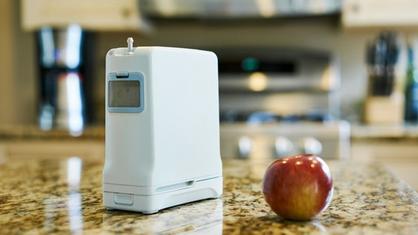
The dimensions of the Inogen One G5 are 7.19’’ width x 3.26’’ depth x 8.15’’ height and the dimensions of the G3 are 8.75’’ width x 3’’ depth x 8.25’’ height. As you can see, the differences are somewhat negligible, however, if you know you’re going to be using your POC in a compact area like storing it under a seat or bringing it on an airplane, it might make a difference for you. Conversely, if you want a machine that’s as comfortable as possible on your shoulder, the additional depth on the G5 may be a deal-breaker.
Sound Level
Many people have concerns about the sounds that portable concentrators make because they don’t want to disturb people if they’re in a church service, in a quiet library or any other crowded area. Fortunately, POCs are designed specifically with these people in mind and the G3 and G5 are no exception.
The Inogen One G5 is one decibel quieter than the G3 at just 38 decibels. That’s about as loud as a whisper and since these devices make a humming noise, it’s not a sound that will be distracting to you or the people around you. While most people won’t be able to tell a difference between the two devices, it may be something to consider when purchasing a portable oxygen concentrator.
Another thing to be aware of is the audible alerts that are present in these two devices. These alerts will activate to let you know when your battery is low or a part needs replacement. If you find them distracting or disruptive, however, you can turn them off using the control panel.
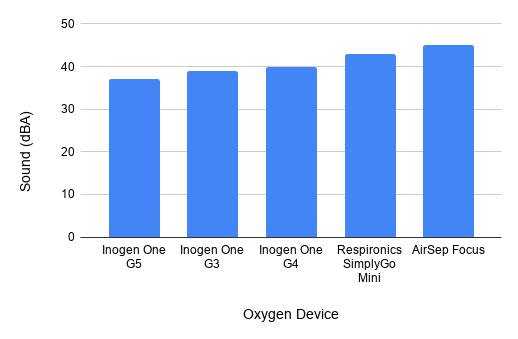
Battery Life
Battery life is one of the most important factors to consider when purchasing a portable oxygen generator. Many people who purchase the Inogen G5 do so because they know they’re getting the best battery life a POC can offer, however, the Inogen One G3 isn’t too far behind. With the G5 you can get up to 6.5 hours with the single battery and 13 hours with the double battery. With the G3, you’ll get up to 4.5 hours with the single battery and 9.5 hours with the double battery.
The great thing about Inogen batteries is that they’re extremely lightweight. If you think you’re going to need more battery life than what’s offered with the standard single battery, you can always purchase a second one or upgrade to a double battery. Since G3 and G5 are such light units in the first place, carrying an extra battery or two will not be a problem.
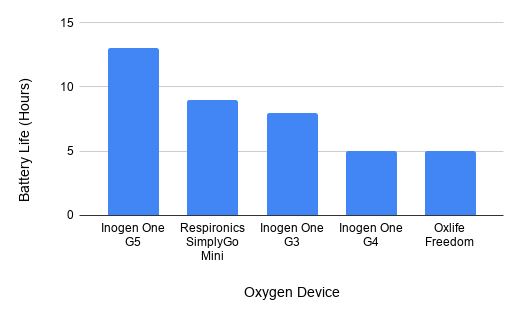
Battery Charge Time
Once you make it back home from the store, visiting a friend, or going on vacation, you want to be able to charge your batteries quickly and reliably. Both G3 and G5 single batteries will go from empty to fully charged in 2 to 4 hours and if you’re interested, you can even purchase an external battery charging. What this means is you’ll be able to charge a battery on your Inogen unit and the external battery charger at the same time.
FAA Approved
Both the Inogen One G3 oxygen concentrator and Inogen G5 are approved by the Federal Aviation Administration (FAA) for in-flight use. What this means is that if you’re planning a trip across the country or outside the country, you’ll never have to worry about your airline turning you down. Unlike oxygen tanks which are highly pressurized devices, oxygen concentrators have no stored oxygen. What’s more, concentrators are not flammable, bulky, and heavy like oxygen tanks are.

3-Year Warranty
Another benefit of each portable pulse flow oxygen concentrator is that they both offer 3-year warranties. A warranty is a type of protection plan that allows you to replace your unit for free within a certain period of time. Although the processors inside the G3 and G5 are set to last you 20,000 hours of use, you can rest easy knowing you’ll be covered for three years.
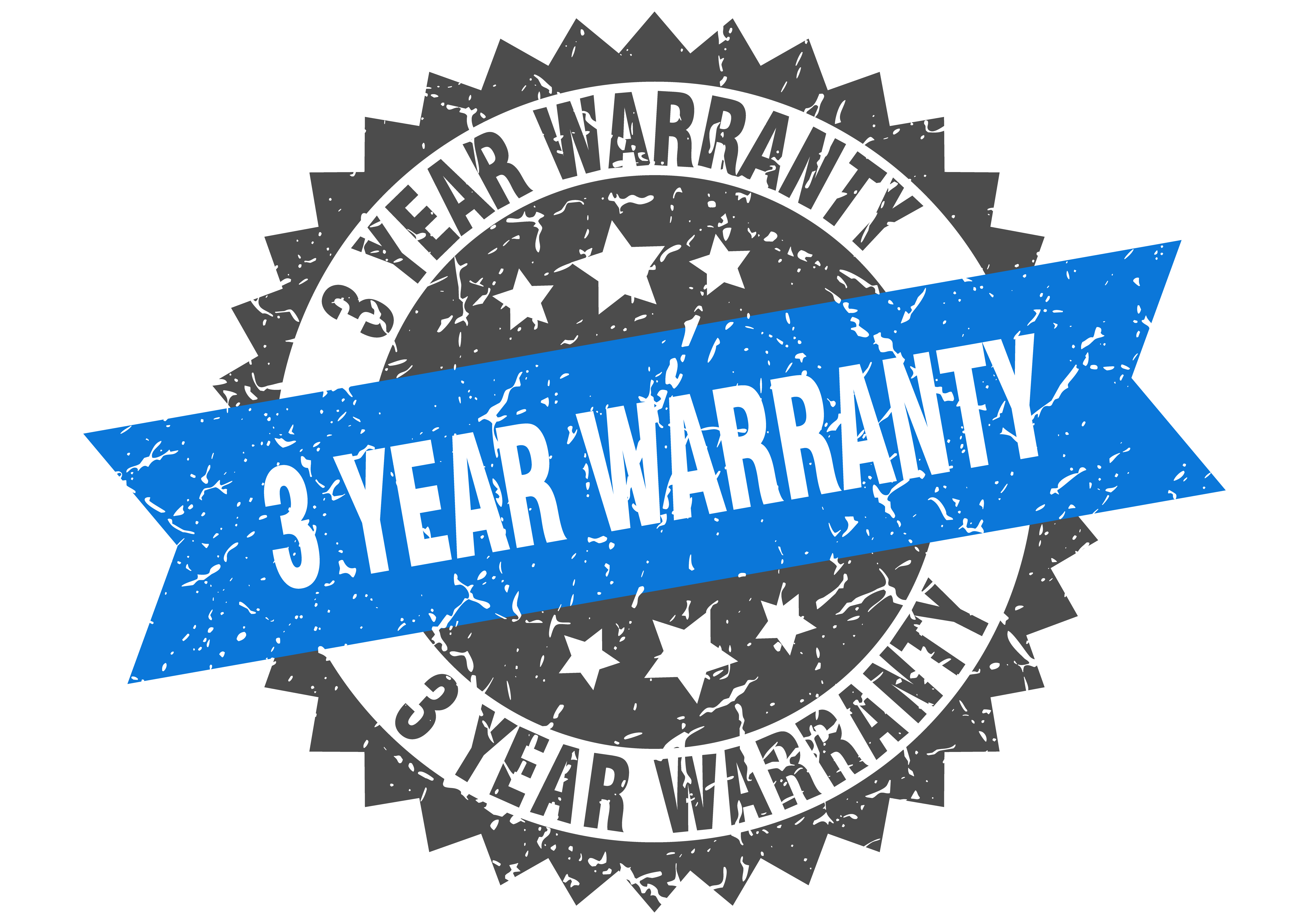
You’ll also have the opportunity to upgrade to a lifetime warranty. This is perfect for anyone who has tried an Inogen product in the past and is confident they want to stick with this unit as long as they need it. Inogen lifetime warranties are a great value and provide you with the security you’re looking for in a portable oxygen concentrator.
G3 and G5 Side-by-Side Comparison
|
|
|
|
|
Oxygen Settings |
Pulse Dose: 1 to 6 |
Pulse Dose: 1 to 5 |
|
Weight |
4.7 Pounds |
4.9 Pounds |
|
Battery Duration |
Up to6.5 hours with single battery Up to 13 hours with double battery |
Up to 4 hours with single battery Up to 8 hours with double battery |
|
Battery Charge Time |
Up to 4.5 hours with single battery Up to 9 hours with double battery |
Up to 4 hours with single battery Up to 8 hours with double battery |
|
Maximum Oxygen Output |
1260 ml/min |
1050 ml/min |
|
Noise level |
Around 38 decibels |
Around 39 decibels |
|
Dimensions |
Width: 7.19 inches Depth: 3.26 inches Height: 8.15 inches |
Width: 8.75 inches Depth: 3 inches Height: 8.25 inches |
Who Should Purchase an Inogen One G3?
The Inogen One G3 is a fantastic unit that has stood the test of time. Despite being nearly a decade old, it still holds up as one of the best units on the market. The best candidate for the Inogen One G3 is someone who wants a high-quality portable oxygen concentrator that’s lightweight, reliable, and has a great battery life. Since it is an old unit, you can expect to see a lot of refurbished portable oxygen concentrators since many patients decided to upgrade to the Inogen One G5.

Another thing to consider is the oxygen output. If you only need to go up to a pulse flow setting of 5, then the G3 will be perfect for you. The G3 provides you plenty of room to grow into without having to pay for any additional features that you don’t need. Whether you’re financing a portable oxygen concentrator, purchasing a refurbished unit, or buying one that’s brand new, you can’t really go wrong with the Inogen One G3.
{{cta('b59df0c1-c4de-47a8-8e1c-0d33d4b414aa','justifycenter')}}
Who Should Purchase an Inogen One G5?
The Inogen One G5 is the most advanced and powerful pulse flow portable oxygen concentrator for sale. With unmatched battery life, oxygen output, and reliability, the G5 is built for people who want the best of the best. Since the G5 was released this past summer, you can rest assured that the unit will be supported for many years to come and if you ever need replacement parts, you won’t have to look far.
Another reason to purchase an Inogen One G5 is if your doctor has prescribed you with a high flow rating of 6. The G5 is one of the only pulse flow concentrators that goes up to a 6, meaning that if you need to upgrade beyond that, you’ll need to opt for a bulkier and less portable continuous flow oxygen concentrator. If cost is not a concern, the G5 is the best portable oxygen concentrator you can get your hands on. And even if you are short on cash, you can always purchase a refurbished unit or put together a flexible financing plan.

Last but certainly not least, the Inogen One G5 has some additional features that aren’t available on the Inogen G3. The G5 comes with a built-in technology called the the Inogen Connect. This was first implemented in the Inogen G4 and allows you to connect your portable oxygen concentrator to your phone, allowing you to see important information such as your battery life, sieve bed life, and device status without ever having to touch your G5.
Conclusion
Objectively speaking, the Inogen One G5 is the best high-flow portable oxygen concentrator. However, this does not mean that it’s right for everyone. What matters most is that you get a unit that matches your wants and needs without adding any unnecessary costs for you. If the added battery life, reduced weight, and additional features such as the Inogen Connect app are important to you, then the G5 should be your first choice. However, if you can do without these upgrades, the G3 is a great budget unit that offers the same reliability and warranty.
There are plenty of great oxygen concentrators on the market. While Inogen is pushing the boundaries for pulse flow units, there are a host of incredible continuous flow portable oxygen concentrators out there as well such as the SeQual eQuinox and Respironics SimplyGo. Before beginning your search, be sure to discuss with your doctor to learn exactly what amount of oxygen you need and whether or not pulse flow will be an option for you. Once that’s done, give us a call and we’ll help you find the perfect unit for your needs.

